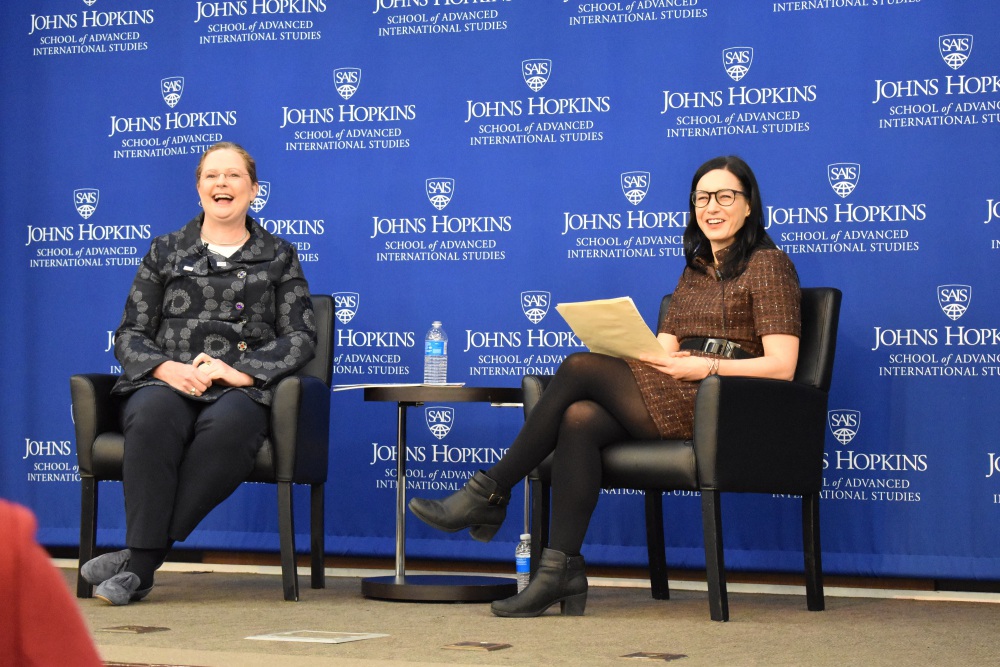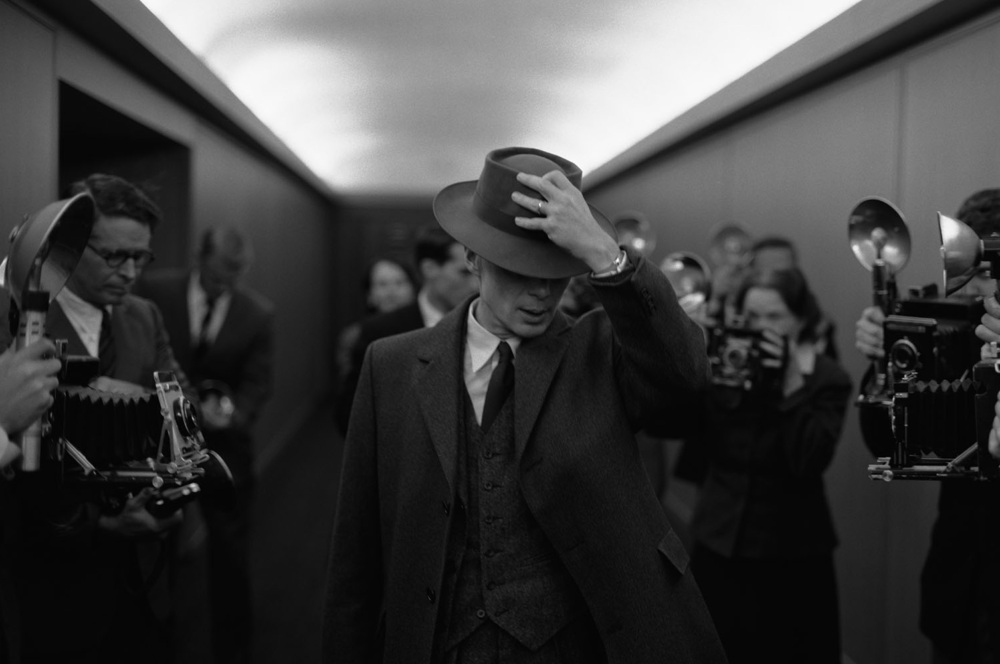This post was written by Kelsey
Stanley, an intern working with NTI’s Materials Risk Management
team. Stanley holds a Master of Arts degree in International Security from
Georgetown University’s Security Studies Program. She also holds a Bachelor of
Arts in European Studies from Washington University in St. Louis.
Thirty
percent.
That’s the
minimum percentage of women that should make up any workplace, any leadership
team, any meeting, or any panel discussion before true benefit becomes
apparent. Laura
Holgate, vice president of Materials Risk Management at the Nuclear Threat
Initiative, and others at a recent event repeatedly referenced this fact in a
discussion about the role of women in peace and security.
Holgate and
Michelle Dover, director of projects at the Ploughshares Fund, recently marked
the one-year anniversary of Gender Champions
of Nuclear Policy (GCNP), the leadership network they founded in November
2018 to break down gender barriers and make gender equality a
working reality in the field of nuclear security.
In the past
year, 44 institutional leaders have joined GCNP as Gender Champions, where each
takes on pledges to support gender equality and inclusion within their
organizations. Among these Champions: NTI Co-Chair and CEO Ernest J.
Moniz and Ploughshares President Joe Cirincione.
In a bit of
fortuitous timing, the Johns Hopkins School of Advanced International Studies
(SAIS) held a conference in November called
“Advancing Women’s Leadership in Peace and Security,” featuring a
fireside chat with Holgate. This all-day meeting included speeches, panels, discussion,
and an open mic showcasing women who have served in high-level positions in the
United States’ government. These women spoke about their experiences in the
field, ways for women to succeed in peace and security, imposter
syndrome, and how to support other women, even if competing with
them.
FORMING OF GENDER CHAMPIONS OF NUCLEAR POLICY
During her
conversation with Sarah Jordaan of SAIS, Holgate spoke both about the formation
of the GCNP and her own experiences working in nuclear policy. The topic of the
talk, “Gender Champions as Institutional Change Agents,” resonated strongly
with Holgate, who told the audience that “issues of change have been a big part
of my career all along.”
Holgate,
former U.S.
Representative to the Vienna Office of the United Nations and the International
Atomic Energy Agency, said she had not
been spared microaggressions throughout her career, but she didn’t feel that
her gender had inhibited her advancement. That lack of dramatic discrimination didn’t diminish her
passion for diversity and change though, and when she left for Vienna in 2016,
she was tapped to further the agenda of the International Gender Champions (IGC), initiated by then-U.S. Ambassador to the European Office of the United Nations in Geneva, Pamela Hamamoto. Among other goals, the IGC sought greater gender
parity on panels—a goal also required of members of GCNP. It was this
leadership network that sparked Holgate’s idea for GCNP to advocate for gender
equality in the nuclear policy space.
Holgate described
how she and Dover began the foundational work of bringing the network to life. Not
wanting to reproduce work already being done in the nuclear space, they consulted
with other groups working on gender issues to test the waters of interest in
such an organization—a process which took a year. “Once we have 20 dedicated Champions—we’ll
launch this thing!” they declared—and, in November 2018, that’s what they did.
Now, after a year—they have more than double the initial 20-person membership
goal and more than half of the gender champions are men.
INFORMAL
AND INSTITUTIONAL CHANGE
During the
Q-and-A with members of the audience, Holgate was asked how to further the goal
of gender diversity more efficiently. She praised the young professionals there
and reminded them that they “are all demanding [gender diversity in the field].”
She recommended: “Make your interests known and use the power you have…to hold your
universities and organizations responsible.” She also suggested creating peer
networks and serving as peer-to-peer coaches to give each other advice,
support, and feedback on both professional and personal issues. To the men and
women present, she suggested making sure to use informal methods of support to
give women necessary boosts in the workplace. Something as simple as giving a
woman credit for ideas she presents during a meeting can go a long way.
Anecdotally,
Holgate mentioned that during her tenure at the Pentagon there was a maternity wardrobe
that was passed around among several professional women—which keynote speaker
Anne Witkowsky confirmed. Informal methods of support—the implication was
clear—can be just as important as more formal methods.
Intersectional
diversity also was identified as vital to progress in the field. “There isn’t a
female view,” Holgate said in response to a question about the importance of
women of color, “there are multiple female views.” Holgate and other speakers
at the conference referenced the fact that it isn’t until 30
percent of a room’s makeup is female that the benefit can truly be
felt. Because women have different points of view and are motivated by
different drivers, you need to include women from a range of backgrounds before
the impact of diversity becomes clear – in meeting spaces, on panels, and within
organizations.




